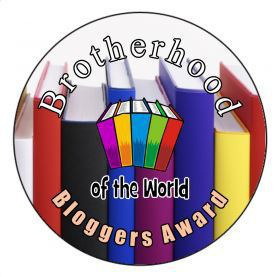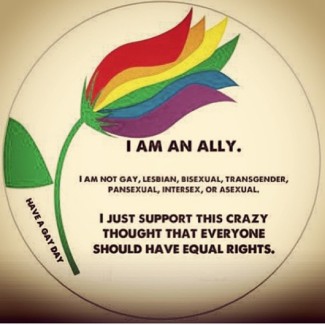Proposed Bill In The U.S. Congress Will Make Doxing A Federal Crime
 In case you’re unfamiliar with doxing, it is term that describes using the internet to search for and obtain the personal information of others, and to post it publicly on the internet with the intent to threaten, intimidate, harass or incite the commission of a crime of violence against a person or a member of the immediate family of that person.
In case you’re unfamiliar with doxing, it is term that describes using the internet to search for and obtain the personal information of others, and to post it publicly on the internet with the intent to threaten, intimidate, harass or incite the commission of a crime of violence against a person or a member of the immediate family of that person.
Some states consider doxing to fall under stalking laws and include an intent to cause the person doxed extreme emotional distress. In fact, in some prosecuted cases of cyberstalking, the victim’s personal information can be the personal knowledge of the perpetrator who posts it publicly on the internet for a malicious purpose.
The personal information that is publicly posted does not have to be accurate. In fact, it can be for someone totally different, which can then lead to civil lawsuits for defamation and identity theft. Doxing has become a serious problem in the United States.
There is a current federal statute for protecting individuals performing certain official duties from having their personal information and that of their families made publicly available. The statute is 18 U.S.C. § 119. It makes it a federal crime to make publicly available the Social Security number, home address, home phone number, mobile phone number, personal email, or home fax number of, and identifiable to, restricted personnel.
The federal statute defines restricted personnel as a grand or petit juror, witness, officer in or of any court of the United States, or an officer who may be, or was, serving at any examination or other proceeding before any United States magistrate judge or other committing magistrate; an informant or witness in a Federal criminal investigation or prosecution; or a State or local officer or employee whose restricted personal information is made publicly available because of the participation in, or assistance provided to, a Federal criminal investigation by that officer or employee. Family members are also protected under the statute.
I’ve often wondered why our federal government does not seem to believe that all citizens want the same protection and the right to be let alone. Maybe that will change soon.
 Representatives Katherine Clark (D-MA), Susan Brooks (R-IN) and Patrick Meehan (R-PA) have introduced H.R. 3067. It is titled the Online Safety Modernization Act of 2017. If passed, it will criminalize doxing as a federal crime.
Representatives Katherine Clark (D-MA), Susan Brooks (R-IN) and Patrick Meehan (R-PA) have introduced H.R. 3067. It is titled the Online Safety Modernization Act of 2017. If passed, it will criminalize doxing as a federal crime.
The text for H.R. 3067, in pertinent part, states that the bill is to amend Title 18 of the United States Code, to establish certain criminal violations for various aspects of harassment using the interstate telecommunications system.
Those found guilty of publishing the personally identifiable information of another with intent cause harm, threaten, or place any person in reasonable fear of death or serious bodily injury, intimidate, harass, or incite or facilitate others to do the same, shall be fined and/or imprisoned for up to 5 years. Along with doxing, it makes sextortion and swatting hoaxes federal crimes.
The Online Safety Modernization Act is supported by Facebook, the National District Attorneys Association, the Federal Law Enforcement Officers Association, the Anti-Defamation League, the National Network to End Domestic Violence, the Cyber Civil Rights Initiative, Legal Momentum, Stop Online Violence Against Women, the National Council of Women’s Organizations, the Women’s Media Center, the FBI Agents Association, the National Coalition Against Domestic Violence, the Association of Prosecuting Attorneys, and the National Center for Missing and Exploited Children.
To contact your U.S. Senators to support H.R. 3067, you can find their contact information at this link.
To contact your U.S. Representative to support H.R. 3067, you can find their contact information at this link.
Washington, D.C. – Today, Congresswoman Katherine Clark (MA-5), Congresswoman Susan Brooks (IN-5), and Congressman Patrick Meehan (PA-7) introduced the bipartisan Online Safety Modernization Act. The legislation is a roadmap for Congress to address online safety and combat the rise in online crimes that disproportionately affect women and girls. Victims have had their private addresses released by online mobs threatening rape and murder (doxxing), have had their private photos published without permission (non-consensual pornography), or used against them in exchange for sexual activity or money (sextortion), and have even been subjected to raids by armed SWAT teams responding to fake emergencies (swatting). As federal policies have failed to keep up with online abuses and local police face a lack of resources, victims often feel they have no choice but to take drastic action like fleeing their homes, spending enormous sums on protection, and leaving job opportunities. The Online Safety Modernization Act enacts penalties for sextortion, doxxing, non-consensual pornography, and swatting, and gives local and federal law enforcement resources to investigate and prosecute online crimes and severe online threats.
“Like every parent, I spend a lot of time thinking about my kids’ safety, whether they’re out with their friends or navigating their lives online,” said Clark. “Unlike parents before us, today we have to worry about things like sextortion, revenge porn, online threats, and online predators. We need to make sure that our policies keep up with the realities of our connected world. The Online Safety Modernization Act ensures that our laws are updated to provide protections for the millions of Americans who are online right now, navigating their personal and professional lives.”
“As our world grows increasingly more connected and mobile, sexual abuse, harassment, and extortion are also moving online, and unfortunately, our laws have failed to effectively protect victims of these crimes, leaving them feeling trapped, ashamed, and desperate,” Brooks said. “The fact of the matter is, the laws governing sextortion, doxxing, and swatting were written when computers didn’t fit in our pockets, phones were plugged into walls, and texting required a stamp. In order to punish and prosecute these predators to the fullest extent of the law, we must bring our laws into the age of smartphones and SnapChat. The Online Safety Modernization Act gives local and federal law enforcement officials, prosecutors, and victims the tools they need to go after these sexual predators and help victims seek justice.”
“The growth of the internet and the proliferation of smart phones have meant that harassment and stalking increasingly takes place online, but our laws have been slow to keep pace with this new generation of predatory behavior,” said Congressman Meehan. “Swatting, sextortion, and doxxing have real-world consequences and the perpetrators should be held accountable for their actions. This legislation empowers law enforcement to crack down on these activities, protects victims, and will ultimately make the internet a safer place to connect with the world around us.”
Posted on 08/24/2017, in open discussion, politics and tagged bill, doxing, doxxing, federal, H.R. 3067, illegal, Online Safety Modernization Act of 2017, sextortion, swatting hoaxes. Bookmark the permalink. 33 Comments.







































Reblogged this on The Militant Negro™.
LikeLiked by 3 people
Mr. Militant Negro,
Thanks for the reblog, dear friend.
LikeLiked by 1 person
This is very good news, Thank you for as always, keeping us all informed.
LikeLiked by 1 person
Mr. Militant Negro,
You are most welcomed. It was good for me to read positive things happening in Congress after hearing so much about in-fighting and partisanship. Hopefully, this Bill will pass.
LikeLiked by 1 person
Keeping my fingers crossed for us all.
LikeLike
Mr. Militant Negro,
I join you in doing that.
LikeLiked by 1 person
🤓🥀🤗🌻😎🌷
LikeLike
I think the USA has had a hard time keeping up with cyber crime technology. But in today’s age of almost all records being ‘public information’ a lot of personal records are available to anyone who knows where to look.
LikeLiked by 1 person
Mindyme,
Yes, we have had a hard time keeping up with how criminals use the internet to conduct cyber crime, and even a harder time educating law enforcement on what takes place and how.
Public records have always been available to the public. The only difference now is instead of calling 411 or trekking down to a courthouse or county clerk, people are doing it online. At least then, it was generally people who knew you so they had your name correct.
Hopefully, there will be law soon regarding the online scam sites that masquerade as background report websites.
The background report website Spokeo is being sued for giving inaccurate and absolute wrong information, and I might soon work on pursing action against another company that does the same. The case against Spokeo has gone back and forth in the 9th Circuit, to SCOTUS, and remanded again to the 9th Circuit. It looks as if the Plaintiff might prevail.
Some of our legislatures have taken note of the UK’s “right to disappear” law for the internet.
Individual privacy could very well return to the way it was before the internet.
LikeLiked by 1 person
I support that. Totally. ( although this is the first time Ive heard of the word doxing.
LikeLiked by 1 person
Ren,
If you have time, please contact your U.S. Senators and Congresspeople and let them know you support H.R. 3067. Your voice matters.
You’re not the only person who had not heard of “doxing.” Since 2013, I’ve spoken to numerous people in law enforcement who had not heard of that word.
LikeLiked by 2 people
Okay . I have their numbers. I don’t need to explain why I support the bill, right ? I mean, just let them know they should pass it ?
LikeLiked by 1 person
Correct, Ren. Tell them that you support H.R. Bill 3067. Thanks so much.
LikeLike
Reblogged this on SUPABUTTERFLY.
LikeLiked by 1 person
Supa,
Thanks for the reblog, dear friend.
LikeLike
Thanks for sharing Xena.
LikeLiked by 1 person
Reblogged this on Home Sweet Home Wyoming and commented:
In case you’re unfamiliar with doxing, it is term that describes using the internet to search for and obtain the personal information of others, and to post it publicly on the internet with the intent to threaten, intimidate, harass or incite the commission of a crime of violence against a person or a member of the immediate family of that person.
LikeLike
Carol,
Thanks for the reblog, dear friend. (((((Hugs)))))
LikeLiked by 1 person
My pleasure Xena.
LikeLiked by 1 person
The internet should be made safe. This bill will definitely help if it passed.
In addition, more personnel as well as training resources need to be given to law enforcement agencies to enable them to enforce the bill and other laws and bills that already exist.
LikeLiked by 2 people
Yahtzee,
One of the biggest assumptive mistakes that SOME in law enforcement make, as well as average people, is that if people are not on the internet, they won’t become victims of the malicious use of it by others. They assume that because on some social media people can be blocked, that it stops the malicious and criminal activity. A person does not have to be on the internet to have someone or others perform the actions that are listed on the subject Bill.
Hopefully, LE will be trained in that area.
LikeLiked by 2 people
Dear Xena,
This issue has become somewhat of a quandary due to the recent racial unrest created by members of various hate groups such as the Nazi party in Virginia. If the bill becomes law will it prevent people who spew forth vile and vicious words and deeds from being publicly identified? Do people such as those who committed various criminal acts in that well planned public event deserve to be safe from the public knowing who they are? I must admit that I have a lot of concern about this issue, and question the absolute right to anonymity while in what could well be considered an illegal act, however I also question the ability to name these people prior to what could be considered legal process. Does my position confuse you, perhaps it will because in some ways it is a question that can only be answered based on ones own perspective of the issue…
LikeLiked by 2 people
Mothman,
Thanks for the question. Re:
I don’t see the Bill doing that anymore than I see police bulletins and the FBI’s most wanted list violating law if that Bill passes. When people show their faces while committing a crime, they have already revealed their physical identity.
I admit to not keeping up on everything recently, but I don’t remember seeing anyone publicly post those persons’ addresses and telephone numbers, etc.
It’s one thing to have a journalist, LE, or activist contacted with identifiable information of someone behind, provoking, or conducting hateful things against others because of the color of their skin, religion, etc. It’s another thing to have the average Joe Blow post your personal information publicly just because they have a personal dislike or personal issue with you and with intent to cause you harm or be held to ridicule.
LikeLiked by 1 person
Xena, While I admit that this is a problem area for me, in that I really can’t agree internally whether this action as we have seen unfold after the Va. “riot?”is right, but it is happening as you will see from the link that I will provide. While part of me says that they deserve to be outed, another part of me says that it is morally wrong to do so…
https://www.recode.net/2017/8/13/16140614/charlottesville-protestor-identities-twitter-yesyoureracist-white-nationalists
LikeLiked by 2 people
Xena, Here is another link, that actually might give you a better idea of where my problem with the outing of these people is coming from..
http://mashable.com/2017/08/17/charlottesville-outing-neo-nazis-nigel-kroft/#ksIhjUvhjOqw
LikeLiked by 1 person
Mothman,
The one thing that I dislike and disagree with is that Krofta lost his job because of people threatening his employer. Everyone in America has a constitutional right to pursuit of happiness. If they can work, want to work, and will work, they have that right. It was wrong for people to harass his employer to deprive him of that right.
During the time when Ferguson was in the news, the same was done to some of the protesters. That is wrong. Threatening harm unless people are terminated from their jobs is wrong and I would also say, a form of extortion that is illegal.
Which goes to say that two wrongs never make a right.
If the Bill passes, (and I sure hope it does), and if people come out in public to protest and are identified by their photo and doxed, the Bill also gives them a private right to action. It will be at that time if we see whether the Bill protects them just as it is intended to protect other citizens.
LikeLiked by 2 people
About time!
LikeLiked by 1 person
While I think everyone has a right to employment and free speech and so forth, I also think it might be up to an employer if they want to keep an employee who is engaged with hate speech and white supremacy or other negatives.
LikeLiked by 3 people
Two sides,
I see where you’re coming from, but what if an employee’s racial and/or political ideologies are not expressed in the workplace? What if they do their work in a position that does not deal with the public and mind their own business? Now, I could see an employer wanting to get into the discriminatory mindset of employees who work for the public, such as law enforcement officers, teachers, political staff, etc. But private employers whose employees demonstrate no bigotry towards co-workers and who are qualified to perform their job shouldn’t be terminated due to public pressure and threats, IMHO.
LikeLiked by 1 person
Very good article, I had never heard of doxing before, thank you for the information. I am going to reblog this article for you.
LikeLike
Reblogged this on Truth Troubles.
LikeLike
Pingback: Bill In Congress Will Make U.S. Doxing A Federal Crime – The Militant Negro™
Pingback: Proposed Bill In The U.S. Congress Will Make Doxing A Federal Crime | We Hold These Truths To Be Self-Evident – Never the less…